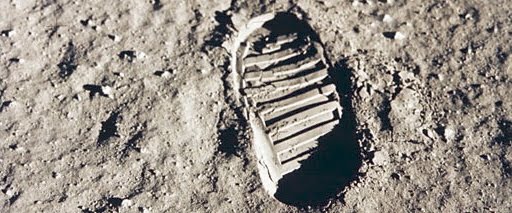
Students have been taught various things about the evolution of our cosmos through the decades. The most recent "beginning" of our universe involves the Big Bang. And this theory has been embraced by education as it is taught throughout the country. But the Big Bang has it's problems. Certainly we will never know everything (unless we actually DO come up with the "theory of everything"). And while scientists continue to come up with such grand unified theories we will undoubtedly have to live with certain gaps in our understanding. But back to the Big Bang.
It seems that scientists have to conjure scenarios to make the Big Bang fit. Right now it is inflationary theory. And scientists have come up with a particle called an "inflaton" that was an apparently crucial part of the rapid expansion of time and space. Otherwise, without inflation, we cannot piece together any reasonable theory of how the universe got to be the way it is. So when scientists try to model the Big Bang, they need to add such items as inflatons. But, alas, one crucial aspect to science in general is that theories are provisional. That means that when better theories and better explantions come along, science is apt to change. And perhaps that is what is happening with the Big Bang.
Another problem with the Big Bang is that when we work backwards to the moment of "creation" we find that the math runs into infinities. And this is always problematic for physicists. Infinities cannot tell us much. But the classic model for the Big Bang does just that, worked matter and energy and space and time into such a small point (the singularity) that it is infinitely dense. At the point of the singularity it gets really messy, but up until this point in time we haven't come up with anything much better. But now, perhaps we have.
While still in it's youth, the Big Bounce, or Loop Quantum Cosmology, this theory is gaining more attention. This is due to a number of reasons, but one of them is that it doesn't require the messy singularity that the Big Bang does. Instead of a universe that spews from absolutely nothing, the LQC posits that our universe came from a previous one. And while that previous universe came hurtling back into itself in a giant universal crunch, our universe exploded from it before it would hit the mysterious and theoretically cumbersome singularity. You can see why we would call this the Big Bounce. It's a lot prettier than the previous theory and solves some of the conundrums of Big Bang.
Like I said, science is provisional. And this theory may have it's problems as well. But the physicists are back at the drawing board trying to devise ways to empirically test the theory. I can't say that, and I won't pretend to understand the details of this theory, but it is an interesting theory that may shed more light on how our universe was formed. And for some strange and illogical reason I find it interesting. Anyway, take a look below.

No comments:
Post a Comment